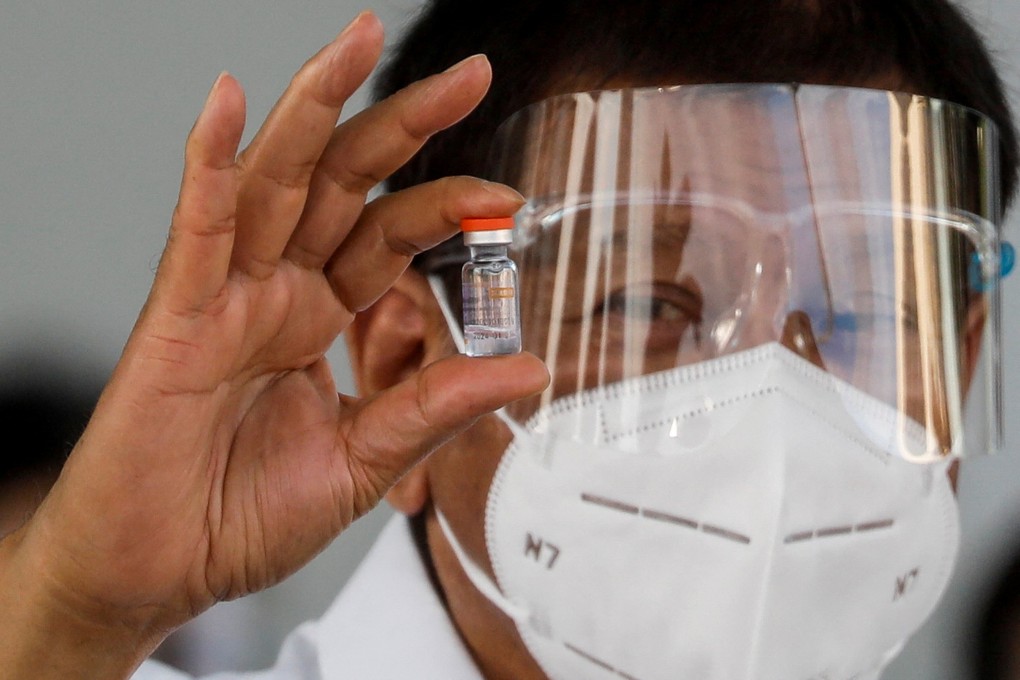Coronavirus: Philippines’ Rodrigo Duterte in quarantine following exposure to Covid-19
- The president was exposed to a household staff member who tested positive for Covid-19 on January 30, but tested negative over the following two days
- The 76-year-old Duterte, whose six-year term ends in June, was double vaccinated with Sinopharm last year, and received a booster shot in January

Philippine President Rodrigo Duterte is under quarantine after being exposed to a household staff member who tested positive for Covid-19, his spokesman said on Thursday.
Duterte, 76, has since tested negative for Covid-19, but is “currently observing mandatory quarantine protocols”, presidential spokesman Karlo Nograles said.
“The chief executive continues to work while in quarantine, and is in constant communication with the members of the Cabinet to ensure that urgent matters are addressed,” he added.
Duterte was also monitoring “the implementation of his directives, particularly with regard to the government’s Covid-19 response”, Nograles said. Duterte was exposed to the household staff member on January 30, and tested negative the following two days, he added.
Under quarantine protocols, a person exposed to a Covid-positive individual must quarantine for at least five days if they are vaccinated and do not have symptoms.
The president, whose six-year term ends in June, was double vaccinated with Sinopharm last year, and received a booster shot in January.
On Thursday, the Department of Health reported 8,702 additional Covid-19 cases, bringing the country’s total caseload to more than 3.58 million since the start of the pandemic. The death toll rose by 71 to 54,168, it added. Cases have been declining after a surge due to the Christmas holidays and the highly transmissible Omicron variant.
